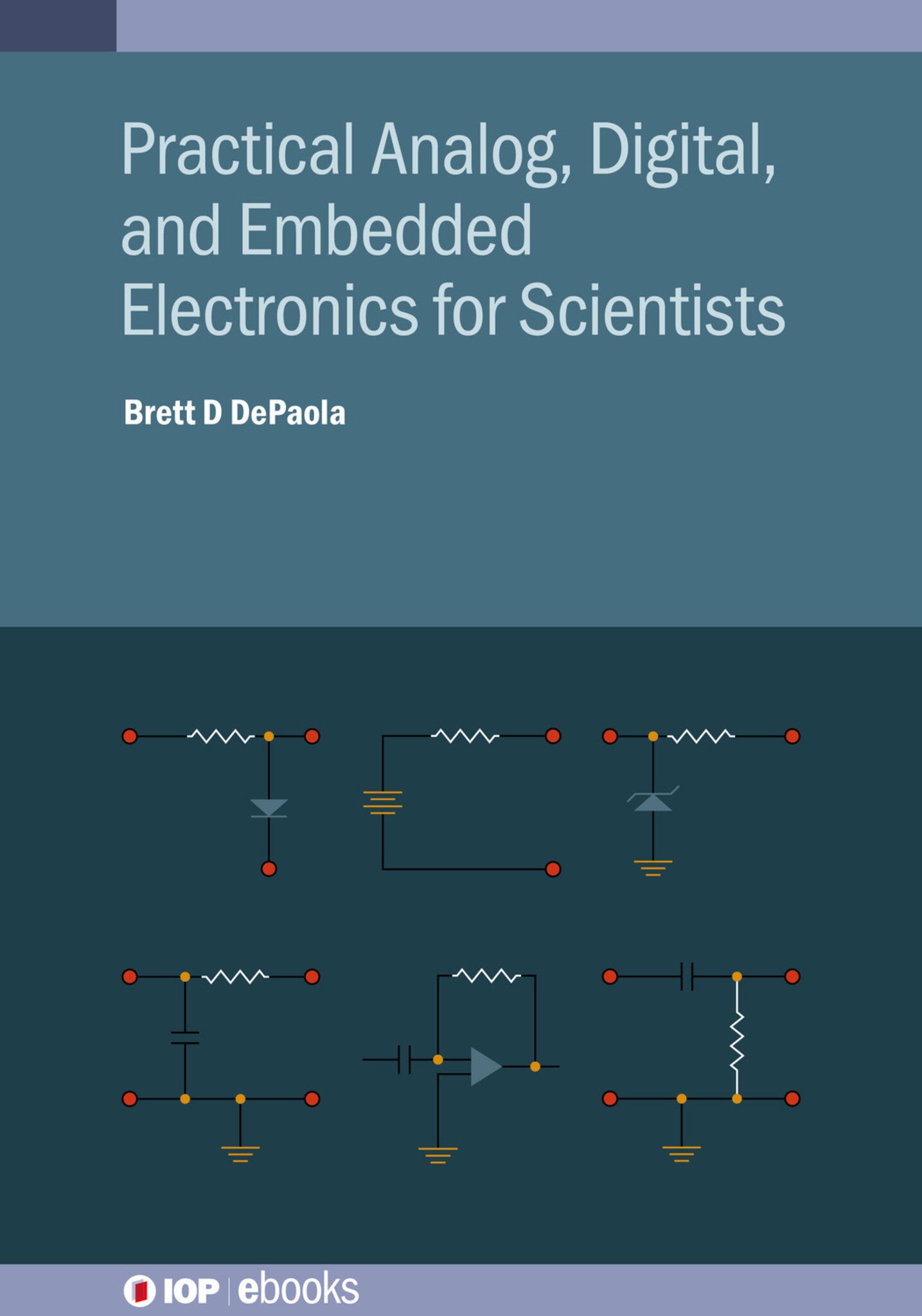We're sorry. An error has occurred
Please cancel or retry.
Practical Analog, Digital, and Embedded Electronics for Scientists

Some error occured while loading the Quick View. Please close the Quick View and try reloading the page.
Couldn't load pickup availability
- Format:
-
30 December 2020

This book is different to other electronics texts available. First, it is short. Created for a one-semester course taken by physics students, both undergraduate and graduate it includes only the essentials and covers those topics only as deeply as needed in order to understand the material in the integrated laboratory exercises. Unlike many electronics texts for physics students, this one does not delve into the physics of devices. Instead, these are largely treated as black boxes having certain properties that are important to know for designing circuits. The physics comes when the students use their acquired electronics instrumentation knowledge to construct apparatus to make measurements. Since the detailed physics has been left out, this book should be equally useful for students in any of the physical or life sciences. This is the first textbook aimed at the non-electrical engineering student, that has both the generality on analog and digital electronics circuits, coupled to the very timely technology of embedded electronics. The book also features homework exercises, parts list and a suite of useful appendices.
Key Features
- Combined lectures and laboratory course
- Covers analog and digital electronics
- Includes embedded systems
- Homework problems with solutions
- Complete inventory of required components

TECHNOLOGY & ENGINEERING / Electronics / Circuits / General, Electronics: circuits and components, TECHNOLOGY & ENGINEERING / Electronics / Digital

“The topics covered allow the course to build from simple circuits that the students may well already understand, through to measurements using embedded systems while covering a broad range of ‘useful’ circuits along the way. Key strengths are that it covers only what is required to enable understanding and utilisation of practical electronics for physical sciences. Employing user-friendly open-source microcontroller/computer platform to explore embedded systems is very useful; data acquisition into a computer is no longer a ‘black box’ for the students.”
Aidan T. Hindmarch, 2020 Department of Physics, Durham University, UK
Preface
I Lectures
1 Introduction
2 RC Circuits
3 Diodes & Transistors
4 Op Amps I
5 Op Amps II: Non-Ideal Behavior & Positive Feedback
6 Digital Gates: Combinational and Sequential Logic
7 Digital-Analog, Analog-Digital, and Phase-Locked Loops
8 Embedded Electronics
II Lab Manual
9 Getting Started
10 R’s & C’s
11 Transistors
12 Op Amps I
13 Op Amps II: Positive Feedback, Good & Bad
14 Digital Gates: Combinational and Sequential Logic
15 Digital-Analog, Analog-Digital, and Phase-Locked Loops
16 Embedded Electronics, Featuring the Beagle Bone Black
III Solutions to Homework
17 RC Circuits
18 Diodes & Transistors
19 Op Amps 1
20 Op-Amps 2
21 Digital Gates
22 Digital-Analog, Analog-Digital and Phase-Locked Loops
Appendices
A Glossary of Terms
B The Linux Operating System
C Connecting to a Remote Computer on the Internet
D Editors
E Brief Primer on C++
F Moving Files onto and off of a Linux USB Port
G Introduction to Gnuplot
H spidev.c Listing
I Pinouts of Selected Components
J Setting Up the Beaglebone Black
K Parts Lists



